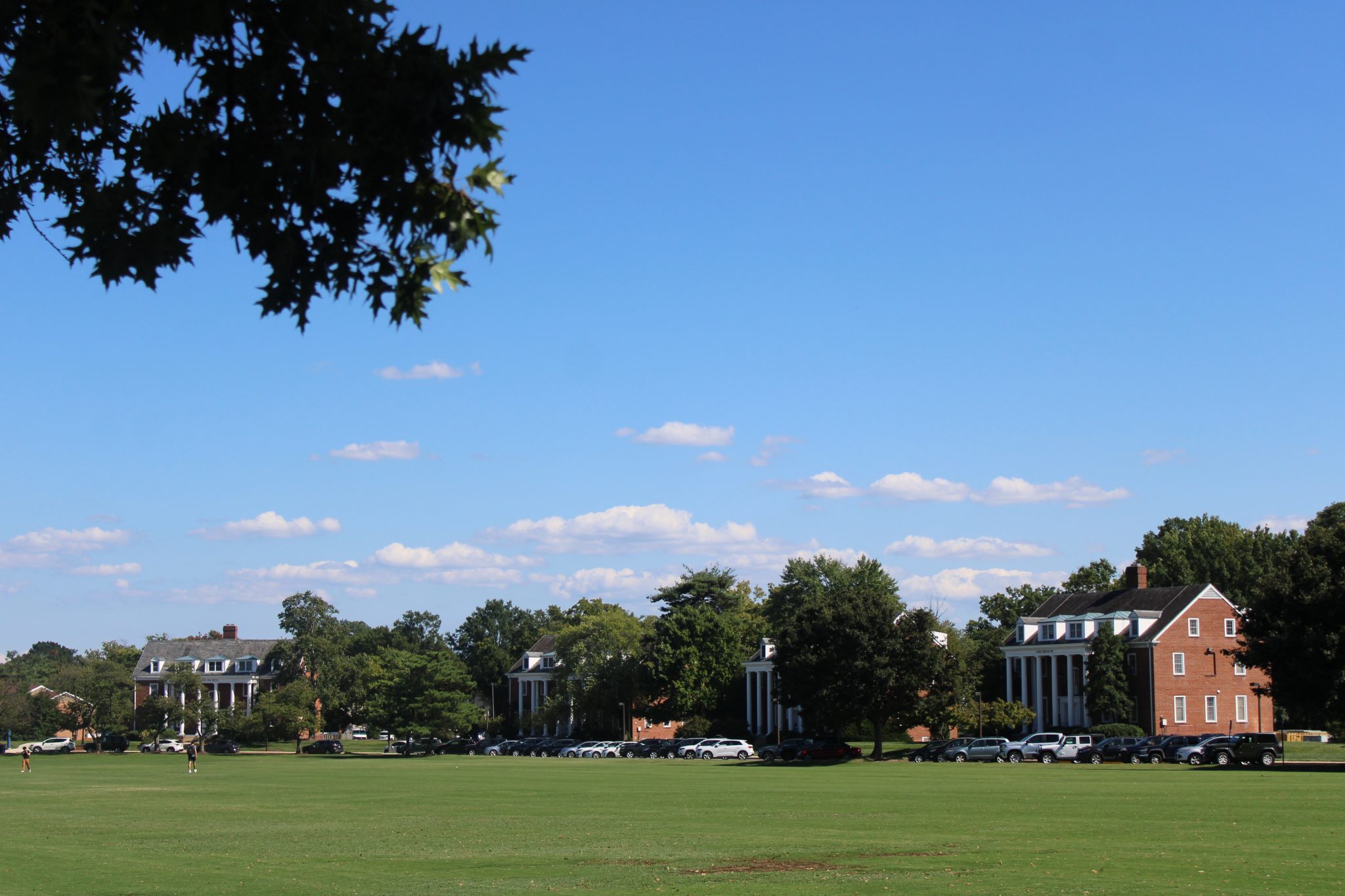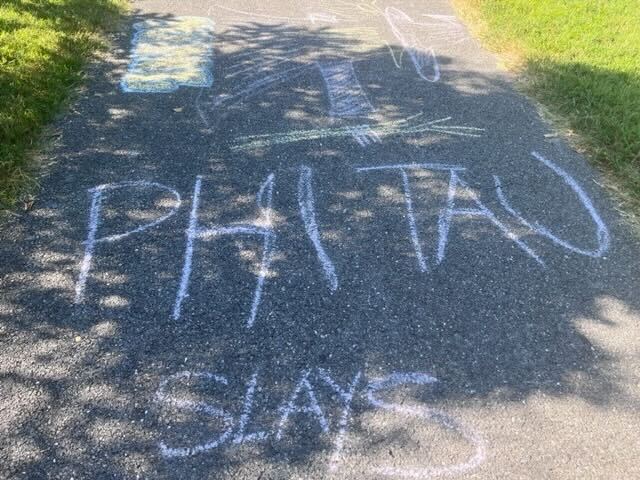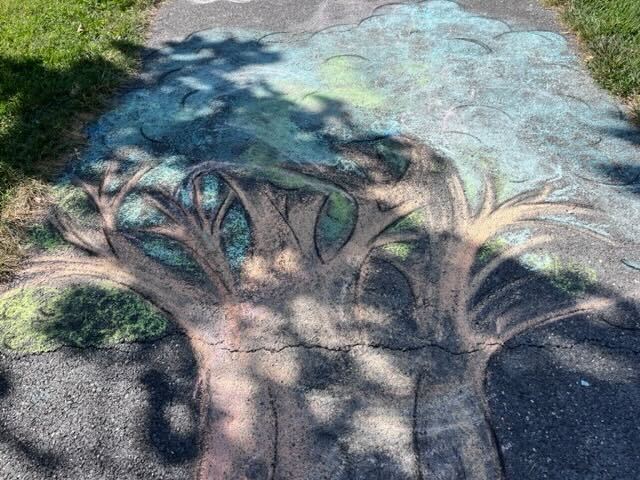Some College Park residents are pushing back against a University of Maryland fraternity after a sexually explicit chalk advertisement surfaced on the Trolley Trail early September.
A member of this university’s Phi Kappa Tau fraternity used the chalk advertisement to provide directions to the fraternity’s house for a party. After the incident, some Calvert Hills and Old Town neighborhood residents said they have now reached a boiling point with the actions of this university’s fraternities — less than one month into the academic year.
The fraternity’s chalk advertisement appeared in a family-friendly portion of Trolley Trail, drawing ire from residents in the area, including Calvert Hills resident Aaron Springer.
“The [fraternity] leadership and membership [need to] have less animal house,” Springer said. “23 years into this new century, [we] need some behavioral evolution.”
District 3 council member Stuart Adams believes the behavior shouldn’t be normalized.
While Adams is concerned about the most recent incident, he said the chalk advertisement is part of a disturbing trend among this university’s fraternities.
“This has been an ongoing struggle in these neighborhoods for years, even decades. I think accountability is the biggest issue that’s there,” Adams said. “When bad behavior happens, the consequences typically seem minor at best, because it seems like it happens again.”
Drawing lewd images in an area that is beloved by children is not acceptable, Adams added.
Samuel Drucker, the fraternity’s president, emphasized that the fraternity is taking action to make amends in a statement to The Diamondback.
“We are taking all of the steps we can to not only make up for what happened, but to teach all of us a lesson and ensure this never happens again,” the statement read.
[New Korean Barbecue restaurant hopes to bring style, low prices to College Park]
The fraternity has had several previous conflicts with its neighbors.
In 2017, this university’s police department investigated the fraternity after a noose was found in the house’s kitchen.
Last year, there were also reports of “rambunctious, physical behavior” in the front yard of the fraternity house, according to District 3 council member John Rigg.
Long-time Calvert Hills resident Russ Little said these types of activities are threatening to the fraternity’s residential neighbors.
Some residents have said they feel unsafe from surrounding parties, Little said.
Fellow Calvert Hills resident Dan Ryan also recognized that living in a college town like College Park is always bound to have certain drawbacks.
“It’s not gonna always be a completely perfect residential family experience,” Ryan said. “It’s a college town so we try to accept some stuff and roll with some stuff.”
In a statement to The Diamondback, this university noted that the fraternity is working with the fraternity and sorority life department to prevent repeat incidents.
“We deeply value our relationship with the College Park community and its broader residents,” the statement read.
Many incidents involving this university’s fraternities are not happening at Fraternity Row, but at satellite houses embedded in the Calvert Hills and Old Town neighborhoods, Rigg said.
Since these houses are off this university’s property, many fraternities host parties away from the eyes of officials at this university.
Rigg highlighted how landlords of these off-campus properties are often unhelpful when issues arise.
“In most cases, they simply wash their hands of it,” Rigg said. “[They] say ‘oh well they’re adults, and be done with that, it’s not my problem.’”
According to Adams, he and Rigg attempt to meet with fraternity leadership at least two to four times a year. These meetings have left him with a sense that social activities should be moved from the neighborhoods to Fraternity Row, he added.
This university’s rules regarding social events hosted on Fraternity Row are much more strict and require a licensed caterer to serve alcohol. Those strict guidelines that push fraternities away campus are at the crux of the issue, Adams said.
“The university pushed a lot of issues into the community when [it] didn’t find a balance on social event requirements with the fraternity houses on campus,” Adams said.
Rigg also acknowledged that most students would rather avoid the hassle of conforming to strict on-campus rules.
“A bunch of busy students are not gonna have a lot of time to fill out forms and checkboxes, especially when the alternative is to use the basement of a house in Old Town,” Rigg said.
To address this issue, Rigg touted the use of noise code officers.
A noise code officer can go to a place where there’s been a noise complaint with a police officer and take a decibel reading, he said. If this reading is too high and the party contains other unruly elements, the officers can choose to shut the party down, Rigg added.
Adams emphasized the city’s progress in addressing unruly behavior.
“The city over the last few decades has created the tools to address issues,” Adams said. “It just needs to use them.”





